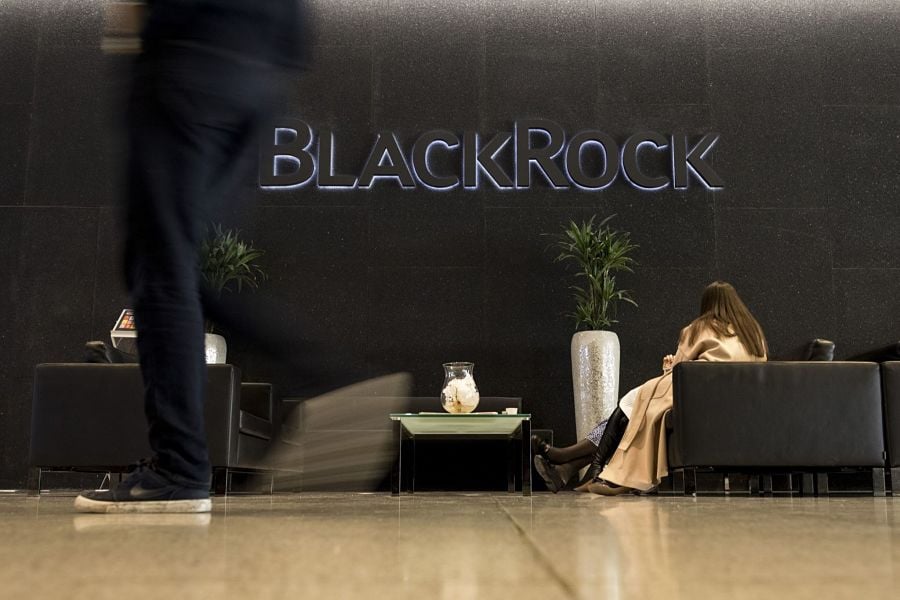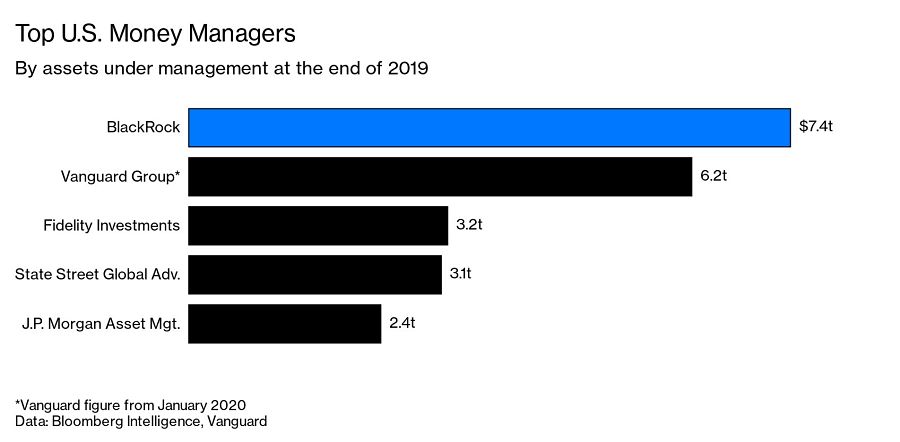

BlackRock Inc. attracted some of the world’s largest institutional investors and sovereign funds when a major stake was sold this month, illustrating chief Larry Fink’s connections with deep sources of capital in the U.S., Middle East and Asia.
Existing shareholders Wellington Management, Capital Group Cos. and Fidelity Investments were among those that bought shares when PNC Financial Services Group Inc. sold a $14 billion BlackRock stake, according to people familiar with the situation. Norway’s $1 trillion wealth fund and Singapore state investment firm Temasek Holdings Pte also increased their holdings, they said, asking not to be identified as the matter is private.

Fink’s extensive network in the Middle East was also on display, with at least four state investment vehicles from the region snaring a part of the stake sale. Abu Dhabi’s Mubadala Investment Co., the Kuwait Investment Authority, Qatar Investment Authority and Saudi Arabia’s Public Investment Fund all took part in the offering, according to the people.
The BlackRock co-founder has been a regular speaker at events organized by Saudi Arabia’s wealth fund. In April 2019, Fink appeared at a Riyadh conference alongside the finance ministers of Saudi Arabia, Kuwait and Bahrain. Two months earlier, he was in Abu Dhabi for a meeting with ruler Mohammed bin Zayed Al Nahyan and signed a deal to invest in the emirate’s oil infrastructure
Shares of BlackRock closed Wednesday at $536.40 apiece, giving the company a market value of about $82 billion. That means investors who bought from PNC earned a 27% return in about two weeks.
A representative for KIA couldn’t be reached for comment. Spokespeople for BlackRock, PNC and the investors declined to comment. The names of the individual investors in the share sale haven’t been disclosed yet and will only come out in later filings.
Quick sale
PNC’s sale is the second-largest secondary offering of a U.S. company on record, according to data compiled by Bloomberg. The strong interest from these deep-pocketed investors helped PNC close the deal quickly. The U.S. lender was able to sell the stock within four days of telling BlackRock about its plans, Fink said during a live-streamed interview on May 14.
The sale marked the end of a 25-year-plus relationship between PNC and the world’s largest asset manager. Pittsburgh-based PNC invested $240 million in 1994 when BlackRock was 6 years old. The asset manager went public five years later at $14 a share.
The idea of PNC selling out of BlackRock had been batted around the financial services industry for years. The size of the stake had been flagged as a point of risk in the U.S. Federal Reserve’s stress tests, according to people familiar with the matter.
Investment banks had been pitching for a role on the deal for at least a decade, the people said. When the underwriters -- Morgan Stanley, Evercore Inc. and Citigroup Inc. -- received a phone call from PNC’s management in early May informing them of the plans to sell, it was a long time coming. The timing made sense as companies around the world were looking to shore up balance sheets amid the COVID-19 pandemic.
On the weekend before PNC’s May announcement, bankers drove from their out-of-town homes to New York City offices, phoned investors and completed the landmark offering mostly virtually, the people said.
Fink factor
In most transactions of this kind, the CEO of the company whose stock is being sold is not heavily involved. It was different with Fink, who helped build BlackRock into today’s money management behemoth and arguably knows many of the funds better than the bankers on the deal. He personally made calls to some of the major investors that ended up participating in the transaction, the people said.
The pitch was simple enough: it was an opportunity for investors to buy shares in the world’s largest asset manager at a discount. The shares were sold at $420 apiece, a discount of almost 15% from BlackRock’s closing price prior to the deal launch. All this was done during the coronavirus pandemic, which has seen BlackRock become a key resource for implementing the U.S. central bank’s bond-buying program.
Eight strategic investors accounted for 80% of the orders when PNC put its stake on the block, Fink said on May 14. “It was a testimony of our relationships with these large strategic investors,” he said.
PNC received orders for at least two times the amount of shares that were available, illustrating the stiff competition to secure a piece of the sale, the people said. In the days following the transaction, those investors that bought in saw BlackRock’s stock rally, offering big paper gains.
The banks were also winners. The roster of about 20 banks on the deal earned fees totaling up to $160 million, a helpful boost to their business amid the tepid initial public offering market. Morgan Stanley, Citigroup and Evercore will receive more than half of the fee pool, the people familiar with the matter said.

The new regional leader brings nearly 25 years of experience as the firm seeks to tap a complex and evolving market.

The latest updates to its recordkeeping platform, including a solution originally developed for one large 20,000-advisor client, take aim at the small to medium-sized business space.

David Lau, founder and CEO of DPL Financial Partners, explains how the RIA boom and product innovation has fueled a slow-burn growth story in annuities.

Crypto investor argues the federal agency's probe, upheld by a federal appeals court, would "strip millions of Americans of meaningful privacy protections."

Meanwhile in Chicago, the wirehouse also lost another $454 million team as a group of defectors moved to Wells Fargo.
Orion's Tom Wilson on delivering coordinated, high-touch service in a world where returns alone no longer set you apart.
Barely a decade old, registered index-linked annuities have quickly surged in popularity, thanks to their unique blend of protection and growth potential—an appealing option for investors looking to chart a steadier course through today's choppy market waters, says Myles Lambert, Brighthouse Financial.
